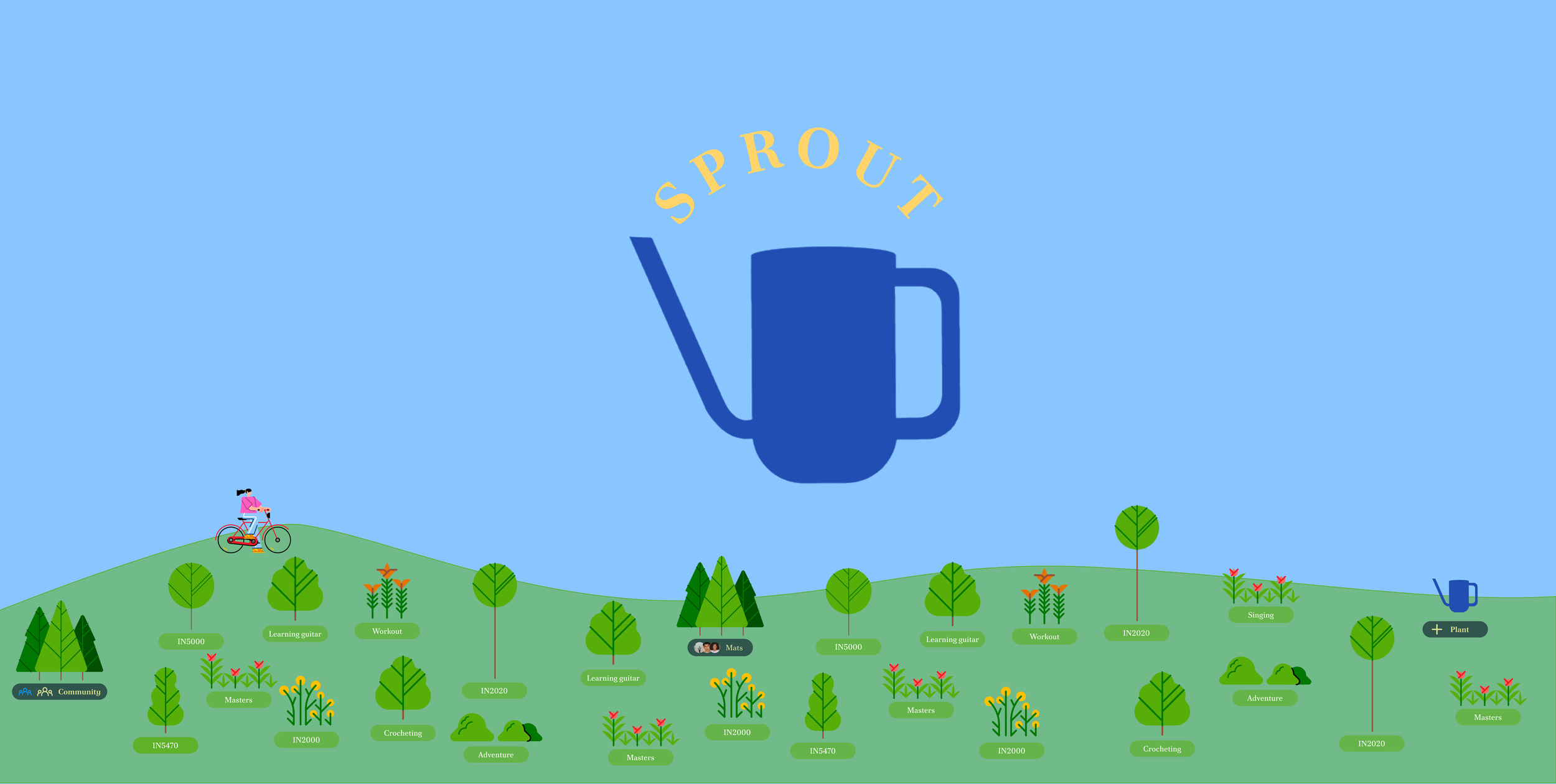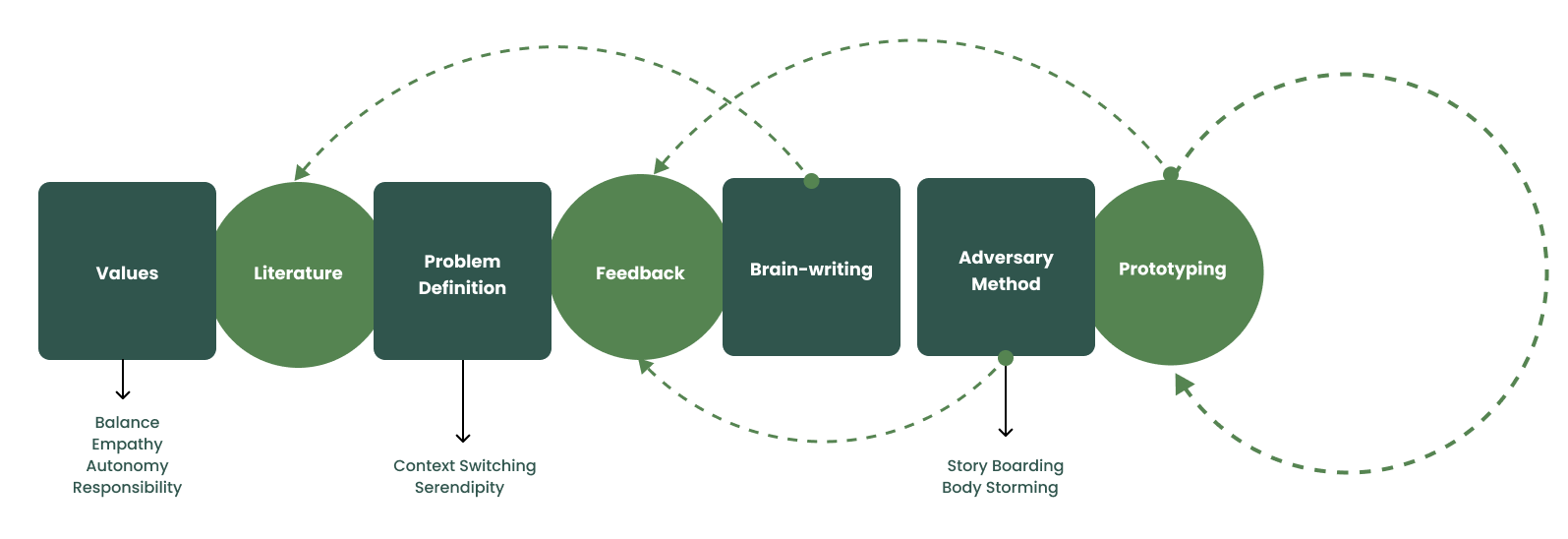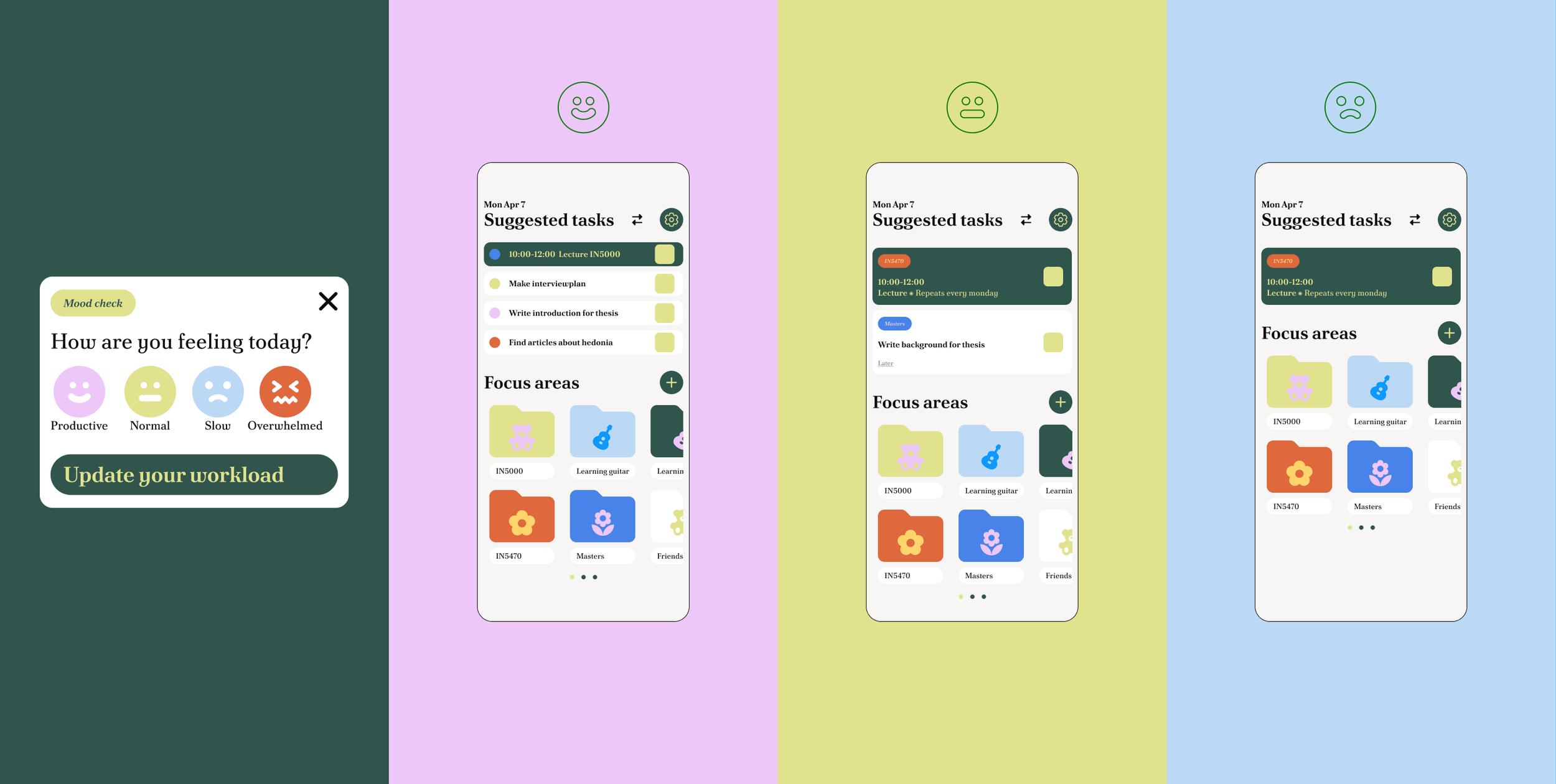Sprout
The prototype is an app called “Sprout”, aimed at moving away from the typical calendar by supporting both productivity and well-being. By aligning the user’s tasks with their goals, we aim for the user to view their tasks as stepping stones toward their dreams and aspirations.
Keywords: app design, design for well-being
My role
Designer
Tools
Figma
Methodology
Literature search, brain-writing, adversary method (through storyboard and body-storming), and prototyping
Challenge
Standard calendars can offer a sense of control over one’s life: they allow for the structuring and organization of tasks. However, they seldom, if ever, address the user’s well-being. Upon reflecting on our own calendars, we found they are often focused on task completion, driven by external expectations and deadlines – tasks that mainly take energy. In stressful times, they can feel quite overwhelming. At the same time, we found that we often looked at our tasks in isolation, rather than seeing them as part of the bigger picture of long-term goals.
Goal
We therefore sought to explore how a calendar might support not just productivity, but also well-being – by creating space for tasks that bring energy and joy, flexibility, and a clearer connection to one’s personal goals. Based on this, we formulated some key questions for exploration:
How can eustress (positive stress) be supported in calendars?
How can we widen the usual notion of productivity, which emphasizes output and efficiency, to include a greater focus on fulfillment?
Process
Our aim is for the calendar to facilitate human flourishing. We therefore looked to Positive Computing and The Self-Determination Theory, along with its sub-theory, The Basic Psychological Needs Theory. This theory guided our design choices to support the user’s well-being. It identifies three fundamental psychological needs: autonomy, competence, and relatedness. The satisfaction of these enhances psychological well-being.
For our app to support these needs, we allow users to have control over their goals and actions (autonomy), set flexible goals that are achievable by breaking them down into subtasks (competence), and have the option of giving and receiving support from others and working towards common goals (relatedness). The Goal Setting Theory further supports the concept of competence: By facilitating the setting of subtasks, we aim to ensure that tasks are not overwhelming, but rather motivating and achievable. Setting specific tasks that are aligned with one’s values and abilities leads to higher task performance.
An overview of our design process. The activities in the squares show our linear process, while the activities in the circles (and additional arrows) show our iterative processes.
An overview of the central psychological theories affecting our design decisions.
Prototyping
During the prototyping sessions an essential question emerged: Were we to make a supplement to a calendar or replace it? This led to reflecting questions such as: Are there enough calendars out there, but not one to keep you happy? Do we want our reimagined calendar to move away from the productivity aspect that emphasizes output and efficiency?
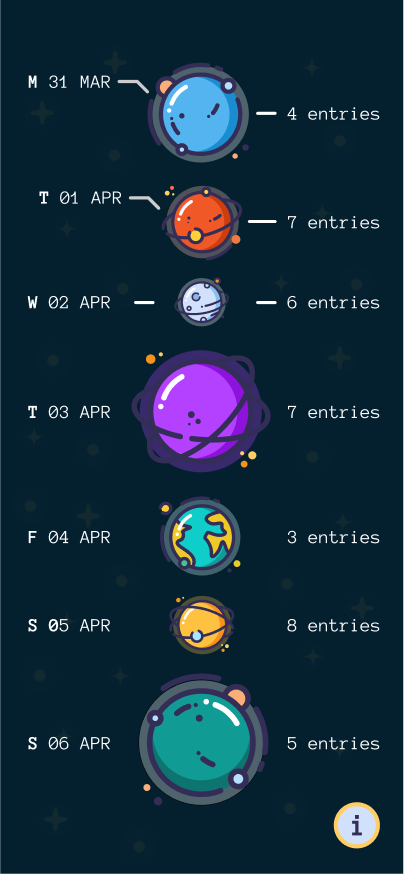
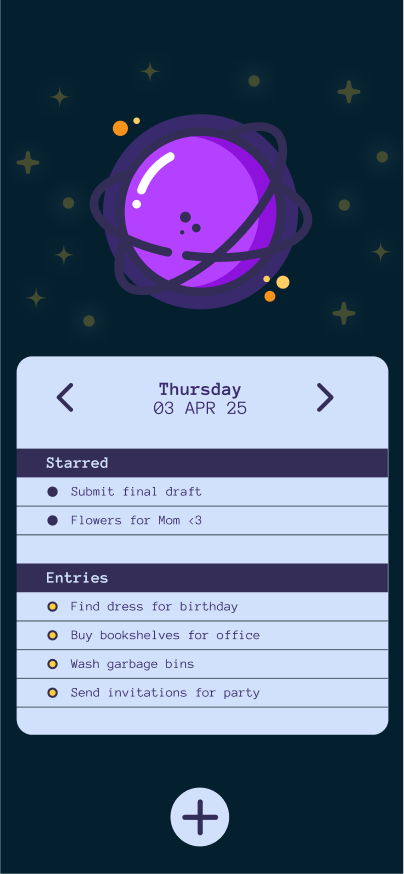
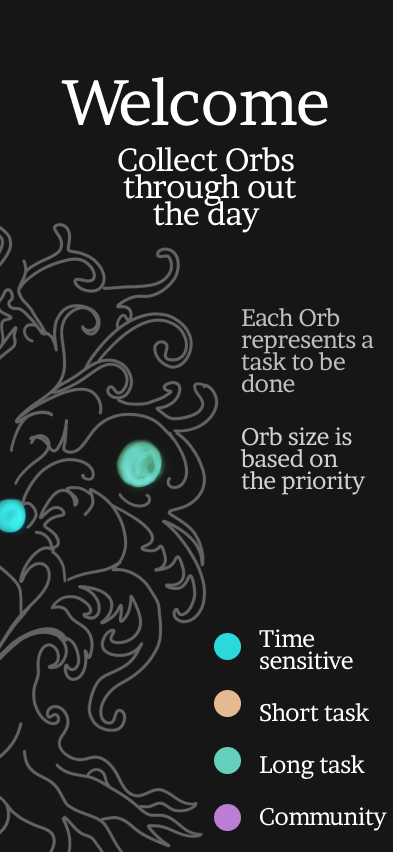
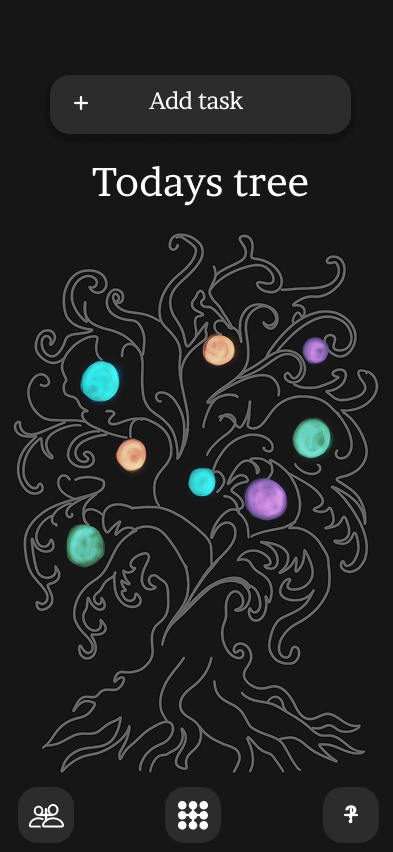
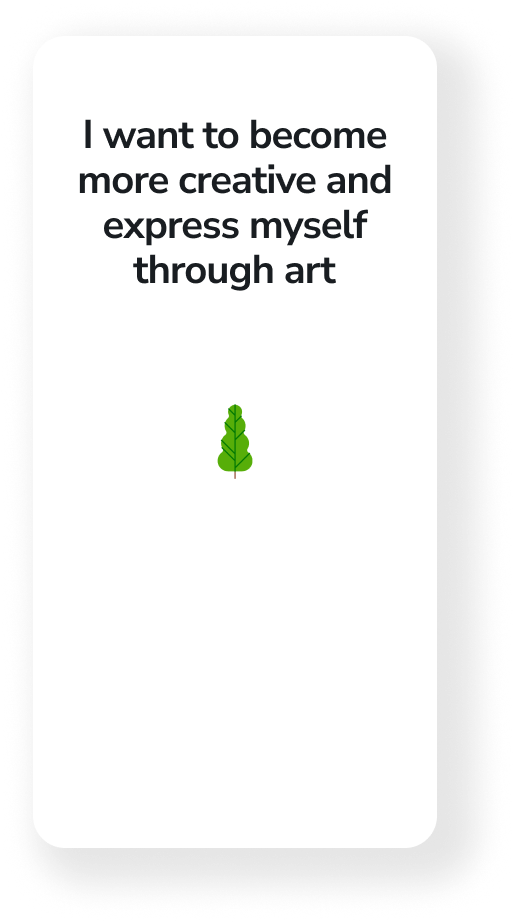
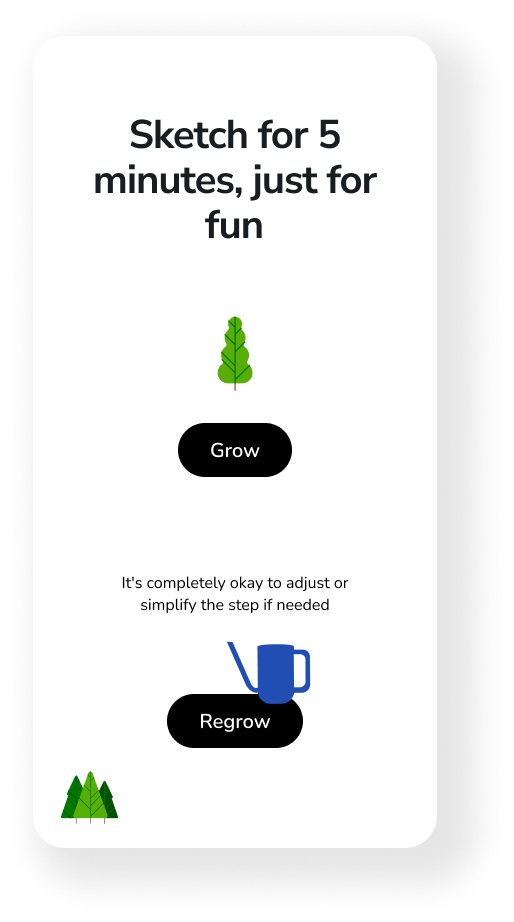

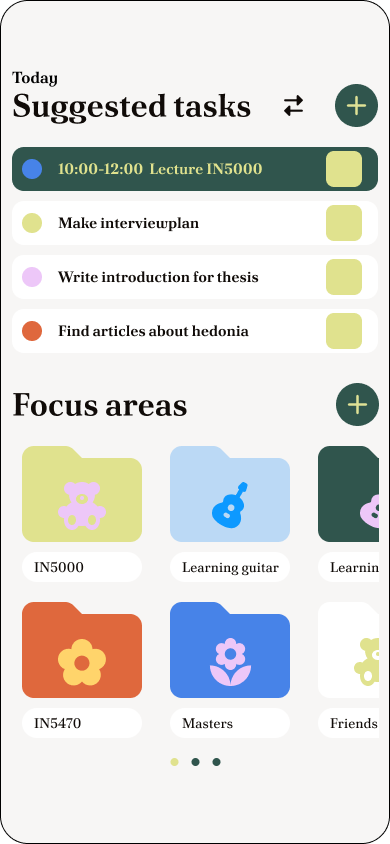
Sprout
We decided to merge our ideas as best as possible, resulting in the concept of “Sprout” – a calendar app for supporting both productivity and well-being. Rooted in psychological theories and concepts, the main aim is to better connect tasks to the user’s long-term goals and personal growth.
The app’s main functionality can be summarized as follows:
The user sets the app’s theme, either a park theme or a folder theme.
The user can set their mood for the day. If the user is leaning towards feelings of stress, the app responds by decluttering tasks.
The user sets their own goals, such as “learn guitar”.
The user breaks their tasks down into subtasks.
If the user feels like switching up their strict schedule, they can push the shuffle button to cycle through the tasks the user has set for themselves.
The user can give and receive support from friends as well as set common goals.
The folder theme to the left and the park theme to the right. With the park theme, featuring trees, we hope to convey the idea of long-term growth (eudaimonia). Just like a tree’s growth takes time, so does personal growth. This might, to some degree, influence the user’s perception of goals as something that takes time, and thus reduce the expectation that rewards or achievements should occur instantly.
Reflections & takeaways
Our questions for exploration cannot be properly answered at the end of our project due to the nature of stress being solely individual: We cannot guarantee that breaking down goals into subtasks appeals to eustress rather than distress and overwhelm, although this design decision was rooted in the Basic Psychological Needs theory and the Goal Setting Theory. Additionally, it is challenging for us to assess whether we have achieved the right balance between supporting productivity and well-being. However, we believe that we have introduced some elements that were lacking in standard calendars, such as aligning tasks more closely with overarching goals, and conveying that personal growth requires (and should require) time. A necessary next step is to have users evaluate the calendar app and compare it with the calendar they use today: Would they prefer this app over their usual calendar? As this project was strictly limited in time, our starting point was mainly based on our own experiences with calendars. It was a good exercise in reflecting on our own use of calendars, followed up by a discussion within the group. Still, the central question when designing an app (or another artifact) is always whether it fits the user group and whether it will be used.
Finally, the concepts and terms I have learned have made me more aware of how technology can influence well-being, both positively and negatively. True fulfillment arises from purpose, growth, and meaningful engagement, rather than simply from pleasure or ease. This understanding has inspired our prototype design. Our app focuses not just on task completion but on the user’s broader personal goals. Thus, we promote long-term flourishing over short-term gratification.
